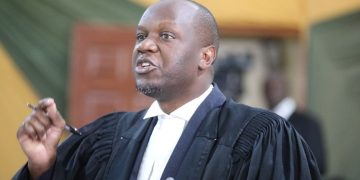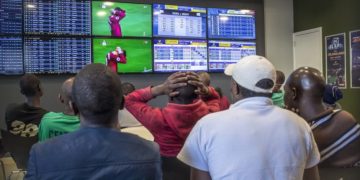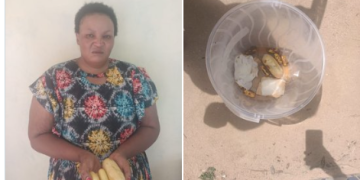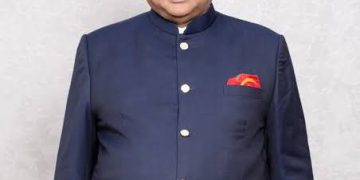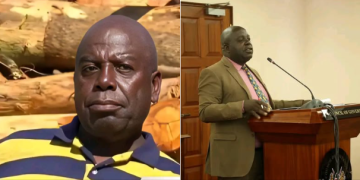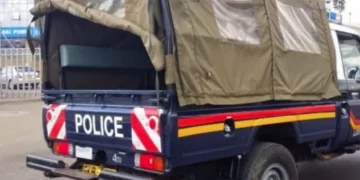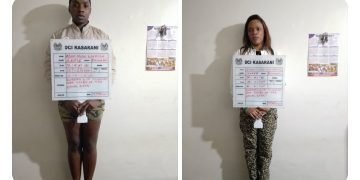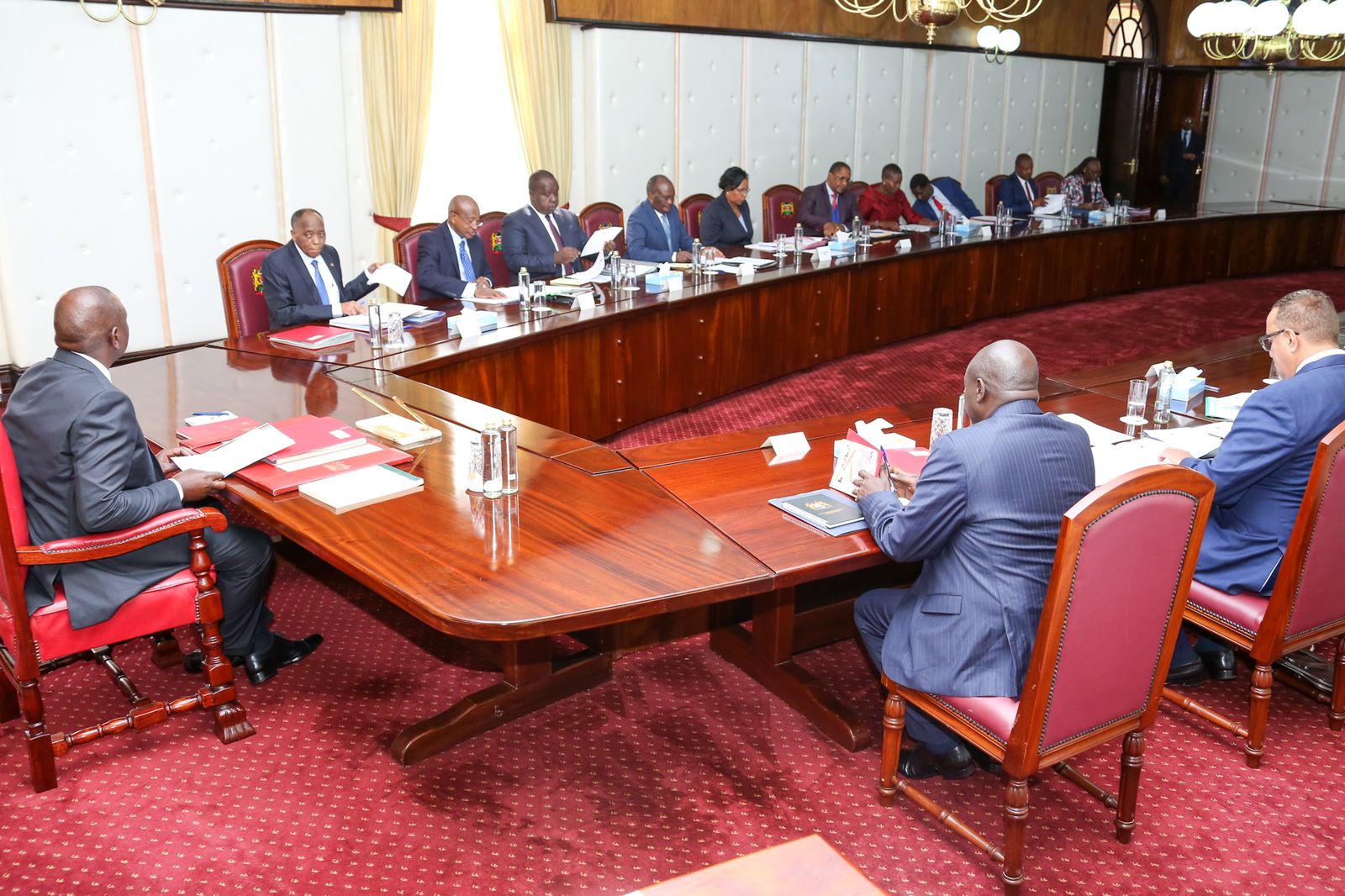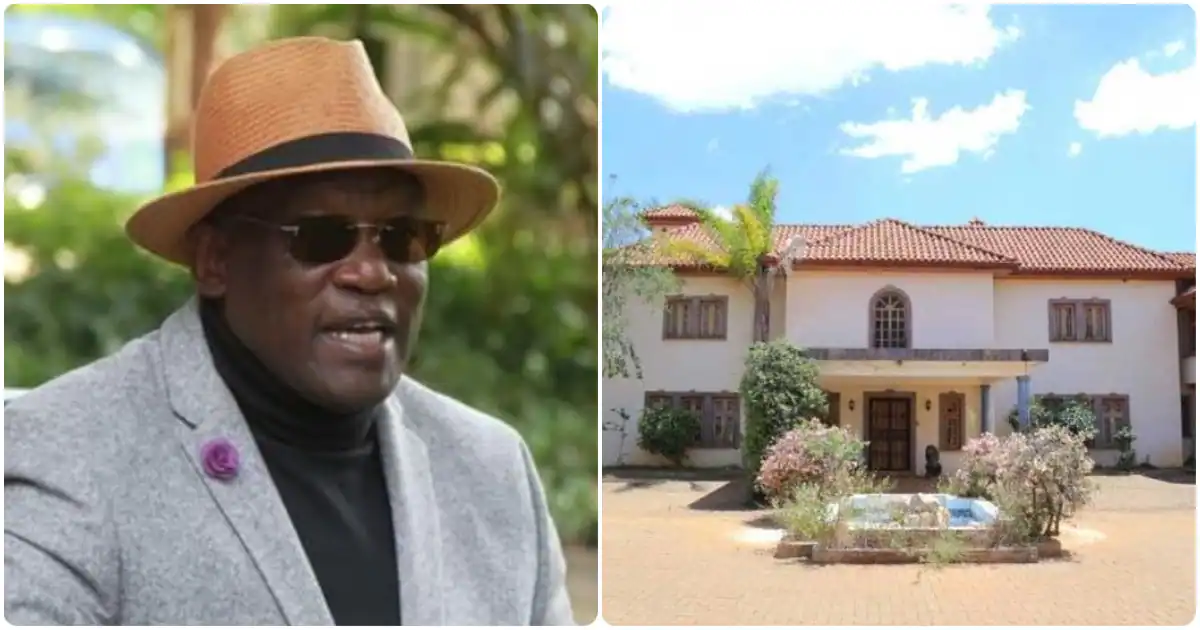Azimio’s Martha Karua has reacted to the Supreme Court’s full ruling on why the Court dismissed their presidential petition.

Taking to her Twitter account, Karua described the ruling as just ‘hot air’.
Hot air https://t.co/ADdJ7Niu70
— Martha Karua SC (@MarthaKarua) September 27, 2022
This elicited massive reactions on her Twitter account.
See the comments below:
@Biancawamu2: Martha Karua, you’re chasing a wild goose. You delivered 34 votes in your own Polling station as Dp candidate. Zero Governor, MCA, MP, Senator, Woman Rep or governor.
Sheila Cherotich: MarthaKarua Heal my sister heal
@Jose_kins: 😅😅😅😅gacùcù I have received the supreme court judges good photo on my tl. Even though it’s my account ,I will keep refreshing to confirm if jose camargo followed hot air without my knowledge😅 Murife don’t run..
@KennyKiruhi: How many MPs did you add to kuzimia?
@Erickmwangiii: Forget the mps we have the first Kikuyu casualty, a lawyer I’m told.
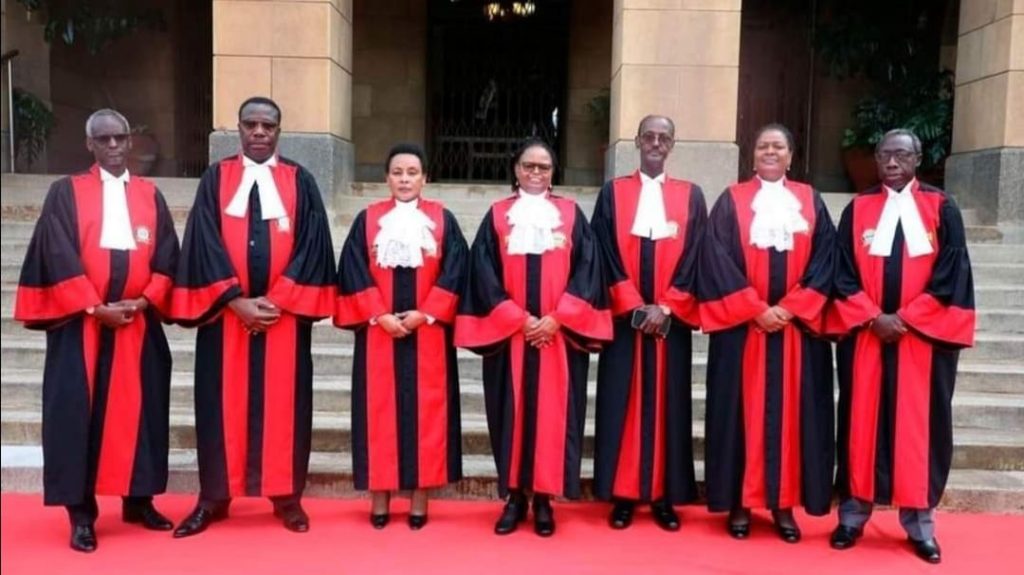
Summary of Supreme Court Judgement on the Presidential Election Petition
The Supreme Court shared the full judgement on the presidential election petition filed challenging the declaration of President William Ruto as the duly elected fifth President of Kenya.
On Monday, September 26, the Judiciary Chief Registrar Anne Amadi transmitted a 133-page document of the judgement delivered by the seven-judge bench on the consolidated presidential petition E005 of 2022.
Amadi further released a summary of the judgement by the court which reads as follows:
“The following explanatory note is provided to assist the media in reporting this case and is not binding on the Supreme Court or any member of the Court.
Orders issued by the court
The apex court judges unanimously issued the following orders on the petition:
The Court dismissed the consolidated Presidential Election Petition.
The Court upheld the declaration of William Ruto as the President-elect as valid under Article 140(3) of the Constitution.
The Court declared Regulation 87(3) of the Elections (General) Regulations, 2012 a nullity to the extent it purports to vest the power of verifying and tallying of Presidential Election results, as received at the National Tallying Centre, solely on the Chairperson of the Independent and Electoral Boundaries Commission to the exclusion of other members of the Commission contrary to the Constitution.
The Court directed each party to bear its own costs.
The Court directed that the sums which were deposited by the petitioners as security be released to them.
Issues raised in the consolidated petition and the Court’s decisions and Judgement by the Court
Whether the technology deployed by IEBC for the conduct of the 2022 General Elections met the standards of integrity, verifiability, security, and transparency to guarantee accurate and verifiable results.
IEBC complied with Section 6A of the Elections Act by opening the Register of Voters for verification of biometric data by members of the public for a period of 30 days. Thereafter, the Register of Voters was revised to address issues that arose from the verification exercise.
⦁ Whereas there was the failure of KIEMS kits in 235 polling stations, the affected voters were granted the right to vote manually.
⦁ The services of Smartmatic International Holding BV was, through a competitive process procured to provide the necessary technological infrastructure since IEBC did not have the capacity to do so. Further, the petitioners did not adduce credible evidence to demonstrate that the system had been accessed by unauthorized persons for illegitimate purposes.
Whether there was interference with the uploading and transmission of Forms 34A from the polling stations to IEBC’s public portal.
The Court held that the petitioners failed to establish to the required standard that there was interference with the uploading and transmission of Forms 34A from the polling stations to IEBC’s public portal. This was because;
⦁ No credible evidence was presented to prove that anyone had accessed IEBC’s Results Transmission System or that it was possible, from the design of the system to intercept, detain and interfere with Forms 34A temporarily before uploading them back onto the Public Portal.
⦁ The Registrar’s Report revealed that the original Forms 34A from the contested polling stations, which were alleged to have been intercepted and interfered with, were exactly the same as those on IEBC’s Public Portal and the certified copies presented to the Supreme Court by IEBC under Section 12 of the Supreme Court Act.
⦁ The review of some of the logs presented by petitioners as evidence to support the claim of interference showed that they were either from the same logs used in the 2017 Presidential Election or were outright forgeries.
Whether there was a difference between Forms 34A uploaded on IEBC’s public portal and Forms 34A received at the National Tallying Centre, and Forms 34A issued to agents at the polling stations.
The Court established that there was no difference between Forms 34A uploaded on IEBC’s Public Portal, those received at the National Tallying Centre, and those issued to the candidates’ agents at the polling stations. This was because-
⦁ No credible evidence was presented to support the allegation that Forms 34A presented to the agents of Azimio La Umoja One Kenya Coalition Party differed from those uploaded to the Public Portal.
⦁ No admissible evidence was presented to prove the allegation that Forms 34A were fraudulently altered by a group of people in some place in Karen in Nairobi under the direction of persons named in the affidavit of John Mark Githongo and the video clip attached to it purporting to support these allegations was inadmissible for the reasons that the informant’s particulars were undisclosed, his statement and account of events, contained in the affidavits of John Mark Githongo were not only incredible but also amounted to hearsay.
⦁ The Form 34A for Gacharaigu Primary School which was sensationally presented by the 1st petitioner to show that one, Jose Carmago, accessed IEBC’s Results Transmission System and interfered with the result contained therein turned out to be no more than hot air and the Court was taken on a wild goose chase that yielded nothing of probative value.
Whether the postponement of Gubernatorial Elections in Kakamega and Mombasa counties, Parliamentary elections in Kitui Rural, Kacheliba, Rongai and Pokot South Constituencies and electoral wards in Nyaki West in North Imenti Constituency and Kwa Njenga in Embakasi South Constituency resulted in voter suppression to the detriment of the petitioners in Petition no. E005 of 2022.
There was no proof to the Court’s satisfaction that the postponement of Gubernatorial elections in Kakamega and Mombasa Counties, as well as Parliamentary elections in certain electoral areas resulted in voter suppression to the detriment of the 1st petitioner. In any event, IEBC had the requisite constitutional and legal authority to postpone elections in the Counties, Constituencies and Wards in question.
Whether there were unexplainable discrepancies between the votes cast for Presidential candidates and other elective positions.
The Court found that IEBC’s explanation for discrepancies between the votes cast for Presidential candidates and other elective positions was satisfactory as they related to those voters who, by law can only vote for the President and no other candidate in an election, namely, prisoners and Kenyans in the diaspora. There were also an insignificant number of stray votes.
Whether IEBC carried out the verification, tallying, and declaration of results in accordance with Article 138(3)(c) and 138(10) of the Constitution.
Despite the apparent divisions between the Chairperson and the four Commissioners of IEBC, the Court was persuaded that IEBC carried out the verification, tallying, and declaration of results in accordance with Article 138 (3) (c) and (10) of the Constitution. Moreover, the mandate of tallying and verification of votes is vested in the Commission collectively and the Chairperson cannot exclude any member or members of the Commission. However, the declaration of the Presidential Election result vests exclusively in the Chairperson.
Whether the declared President-elect attained 50 per cent +1 of all the votes cast in accordance with Article 138(4) of the Constitution.
The Court found that the declared President-elect attained 50%+1 of all the valid votes cast in accordance with Article 138(4) of the Constitution. Further, in calculating whether a Presidential candidate has attained 50% +1 of votes cast in accordance with Article 138 (4) of the Constitution only valid votes cast can be considered. Rejected ballot papers are void and incapable of conferring upon any candidate a numerical advantage.
Whether there were irregularities and illegalities of such magnitude as to affect the final result of the Presidential Election.
There was no cogent evidence to support the general allegations of illegalities and irregularities raised by the petitioners.
What reliefs and orders can the Court grant/issue?
The Court’s jurisdiction in a Presidential Election Petition is quite circumscribed in terms of the Orders or reliefs it can grant under Article 140 of the Constitution. It can either make a determination that the election of the President-elect is invalid which would then lead to an order of nullification of that election.
Consequently, by operation of the Constitution and law it follows that a fresh election must be held within sixty (60) days after that determination. In the alternative, it can determine that the election of the President-elect is valid and issue a declaration to that effect.
Therefore,
⦁ The prayer to declare the Chairperson of IEBC in breach of Article 73 of the Constitution cannot be made in a Presidential Election petition.
⦁ Similarly, the Court cannot make any definitive findings on the Attorney General’s plea to dismiss the Chairperson’s allegation that the National Security Advisory Council (NSAC) attempted to subvert the will of the people.
⦁ Nonetheless, the Court can make recommendations or observations, or structural interdicts besides giving advisory opinion under Article 163(6) of the Constitution.
A display of the Supreme court session as hearing of petition continues on August 31, 2022
A display of the Supreme court session as hearing of petition continues on August 31, 2022JUDICIARY
Recommendations made by the Supreme Court
IEBC
On corporate governance issues:
⦁ Parliament should consider enhancing the statutory and regulatory framework on the separate policy and administrative remit of IEBC.
⦁ IEBC ought to effect formal internal guidelines that clearly delineate the policy, strategy, and oversight responsibility of the Chairperson and the Commissioners; and develop institutionalized guidelines on how to manage the separation of administrative and policy domains.
⦁ The roles of the Chairperson, Commissioners, and the Chief Executive Officer, other staff and third parties should be clearly set out in both the legislative and administrative edicts as stipulated above.
Election technology:
⦁ To avoid suspicion from stakeholders, unless where and when it is absolutely necessary, access to the servers supporting the transmission and storage of Forms 34A, 34B and 34C should be restricted to IEBC staff during the election period.
⦁ IEBC should ensure that the servers supporting the elections and those serving their internal administrative work are distinct and separate. This would then allow the Court, should the need arise, to carry out forensic imaging of the same without compromising and/or infringing any third-party agreements.
Statutory Forms:
⦁ IEBC may consider simplifying and restructuring Form 34A and include a column that accounts for stray ballots. In addition, it may consider having only one section for total valid votes. The independent body may also find it prudent to thoroughly train its Returning Officers as to what constitutes valid votes per this Court’s decision.
⦁ IEBC ought to put in place specific mechanisms to allow for special voting as contemplated under Regulation 90 of the Elections (General) Regulations 2012.
Constitutional Reforms
The Court reiterates what it has stated in the past on the 14-day limit within which it has to hear and determine a Presidential Election Petition.

